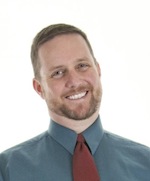 Words tend to change over time. These changes mean that once-clear definitions are at risk of gradually becoming corrupted.
Words tend to change over time. These changes mean that once-clear definitions are at risk of gradually becoming corrupted.
Though our language is always in a mild state of flux, it appears that the word “hero” is now numbered among those terms most rapidly losing their true meaning.
It used to be that a hero was a celebrated figure who showed great strength or ability in performing actions far beyond what was expected. The concept of heroism denoted an effort to exhibit real greatness in the battle of good against evil.
Today our definition of hero is rapidly becoming a prop for the aggrandizement of the state.
For instance, last November, a Utah Highway Patrol drug dog slipped away from his handler and was struck and killed by a passing vehicle. The immediate outpouring of support and gratitude for the dog’s handler are understandable. But many of the comments that accompanied reports of the dog’s death reveal a curious mindset taking hold throughout society. One commenter eulogized the service dog by saying, “He protected and served us. And for that reason deserves the respect any officer would be given who died in the line of duty.”
While a police service dog may be a noble animal, is its life really of equal or greater value than the life an actual human being? Or is the fact that the dog was in service to the state what sways our thinking?
These expressions of sympathy pale in comparison to the official reaction to an incident in Southern California in which a police dog died when after a drunken suspect grabbed him and jumped from the Coronado Bridge. The animal was given a burial with full military honors and all the state pageantry associated with the memory of a fallen hero.
These highly proficient service animals were doing exactly what they were trained to do. There is nothing wrong with expressing sincere appreciation for their service and sorrow at their passing.
But to invoke hero status solely because they were killed in the service of the state diminishes those who have done extraordinary feats that actually rose to the level of heroic greatness. Unfortunately, since the 9/11 attacks in 2001, the word “hero” has been co-opted by the state and applied to all who serve its interests.
This is not to suggest that police, firemen, soldiers and others who wear the state’s uniform don’t deserve respect and gratitude, but if we wish to see the word “hero” continue to stand for something remarkable and exemplary, we should not apply it so arbitrarily.
At the risk of offending those who might confuse respect for the state with its adoration, we should remember that being a hero typically requires more than simply putting on the state’s uniform and doing one’s job.
While it is not uncommon for first responders to do heroic things in the line of duty, there are also many truly heroic individuals who do not serve the state.
They include small business owners who overcome difficult economic conditions to keep their doors open against extraordinary odds. Some heroes look a lot like the family members of the young mother who is bravely battling cancer. I know heroes who tirelessly serve the homeless, the hopeless, and the infirm in a volunteer capacity that neither pays them nor advances their careers.
True greatness is difficult to achieve and its rarity is what makes it worth celebrating and affirming. The abasement of our language is rapidly turning the meaning of words like “hero” into something that no longer rewards virtue but instead promotes a type of mediocrity.
Columnist Charley Reese once wrote,
“No nation can do great things once its people lose the ability to define greatness and to distinguish between the truly outstanding and the mediocre. That is just as important as knowing the difference between right and wrong.”
Not every heroic act makes news headlines. Many are known only to the person who had to make the choice between doing the right thing rather than taking the path of least resistance.
Tom Woods said it best,
“In a world of cowards, stick to your principles. In a sea of lies, tell the truth. Into the darkness, shine a light. Do those things, be that person. Be courageous, and studious, and persistent. Remember that the one person on this earth you have full power to improve is yourself.”
The world needs more heroes like this. It needs people who are willing to reclaim the real definition of “hero” by example.
********************
 Bryan Hyde is a husband, father, disciple, teacher, guardian, reader, writer, truth seeker, stirrer of pots, radio talk show host, and PITA to those who seek dominion over others. He’s also a proud member of the Pro-Freedom Conspiracy.
Bryan Hyde is a husband, father, disciple, teacher, guardian, reader, writer, truth seeker, stirrer of pots, radio talk show host, and PITA to those who seek dominion over others. He’s also a proud member of the Pro-Freedom Conspiracy.
He does professional voice work through his company One Clear Voice.
Bryan and his wife Becky are raising their six children in Cedar City, Utah. He does professional voice work through his company One Clear Voice. He is also a frequent and popular contributor to St. George News.
Subscribe to Bryan’s blog here.






Speak Your Mind
You must be logged in to post a comment.